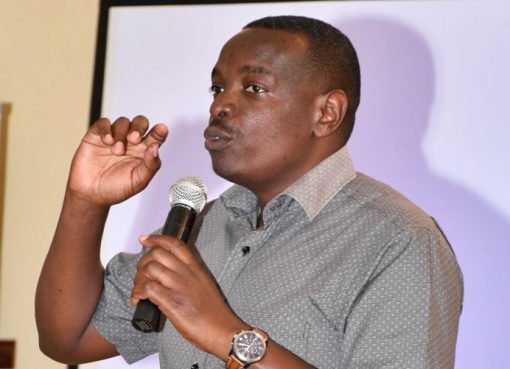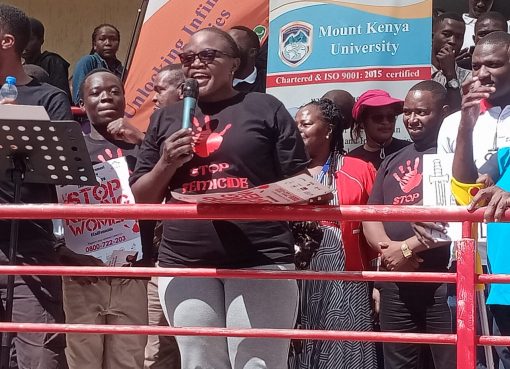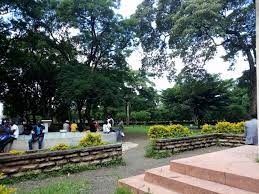Kenyans are inching closer to getting lower power bills once three independent power producers (IPPS) cleared by the Geothermal Development Company (GDC) start operations at the Menengai Crater Floor in Nakuru.
The three producers were expected to set up power plants under a build–own–operate model, giving hope for cheap electrical power in the country. Each is expected to set up a 35MW modular geothermal power plant in the Menengai Crater field to generate a cumulative of 105 MW.
Geothermal Development Company CEO Engineer Johnson Ole Nchoe said once complete, the Menengai GDC plant would produce enough electricity to serve almost 500,000 homesteads and 300,000 businesses.
“We have undertaken 95 percent of works on a 25km long pipeline which is expected to carry 150MW of steam to be used by the power plants in producing electricity,” Engineer Ole Nchoe said in a statement.
GDC’s Corporate Communications and Marketing Manager Wanjiru Kan’gara said both domestic and industrial consumers would benefit from the power tariffs which she said would be most affordable and competitive in the continent.
“We are proposing to have industrial parks to be constructed adjacent to our power plants. They will benefit from our tariffs, which will be the lowest at US $7 cents per kWh. The industries will also utilize the readily available geothermal steam for processing at very competitive rates. I am of the strongest conviction that our efforts at GDC are going to be a major boost to the Big4 agenda,” said Ms. Kan’gara.
The company began drilling at Menengai site in February 2011 and has so far sunk over 43 wells, 24 of which have been tested giving 165 MW. The rest of the wells are still undergoing tests. GDC plans to pump an extra 1065mw into the national grid in the next ten years. The power will be generated from Menengai 465Mw, Baringo-Silale 300Mw and 300Mw from South Rift region as the government seeks more geothermal energy.
“Geothermal energy will be critical in all the fronts because of its affordability. But critically, geothermal energy will drive the agenda of food security and manufacturing. GDC is banking on mining heat from steam to support manufacturing and food security,” noted the Corporate Communications boss.
Quantam Power East Africa was the first of the three IPPs that were chosen to take part in the project to receive a letter of support from the Government for the construction of the 35MW power plant. The IPP has started developing its plant at a cost of Sh8.2 billion. The African Development Bank will provide Sh4.03 billion ($40m) to Quantam.
Two other IPPs – OrPower22 and Sosian Menengai – are strategizing to attain financial closure with financiers
Ms. Kan’gara said as IPPS generated electricity, GDC would continue to promote and implement other direct uses of geothermal energy.
“GDC made history with the first ever-pasteurized milk using geothermal energy at Menengai in Nakuru County. Though at a proto-type level, the unit has proved commercial viability. It uses geothermal steam, instead of wood or oil fuel.
“The milk unit is just one of the four innovations under the Power Africa programme. The other exciting innovations include geothermal heated Laundromat, geothermal heated aquatic ponds and geothermal heated greenhouses. All the four prototypes are ready for uptake,” she explained.
Kang’ara said the company was planning to heat greenhouses for horticulture farming and to heat fishponds. Besides, the massive water condensate from power plants will be channeled for irrigation.
“We have largely earmarked key areas in the Baringo-Silali region, around Menengai Geothermal Project and in the Loita Plains for Irrigation. Our postulations are that with a vibrant food production environment, food processors will also emerge taking advantage of the raw materials and heat from power plants,” stated Ms. Kan’gara.
She affirmed that food processing such as drying of grains and vegetable, milk pasteurization using affordable geothermal heat and technology will save communities a great deal from the pains of post-harvest losses, which is common. That way, we are assured of preservation and therefore mitigation against food insecurities.
GDC has established the Africa Geothermal Center of Excellence to train professionals which Engineer Nchoe said has trained over 500 people from the region.
“The centre of excellence is a critical facility for training a pool of emerging geothermal experts on the continent. Further, the Center conducted a GAP analysis study and identified skills gaps in geology, reservoir engineering and directional drilling,” noted the GDC Chief Executive Officer.
By Jane Ngugi




